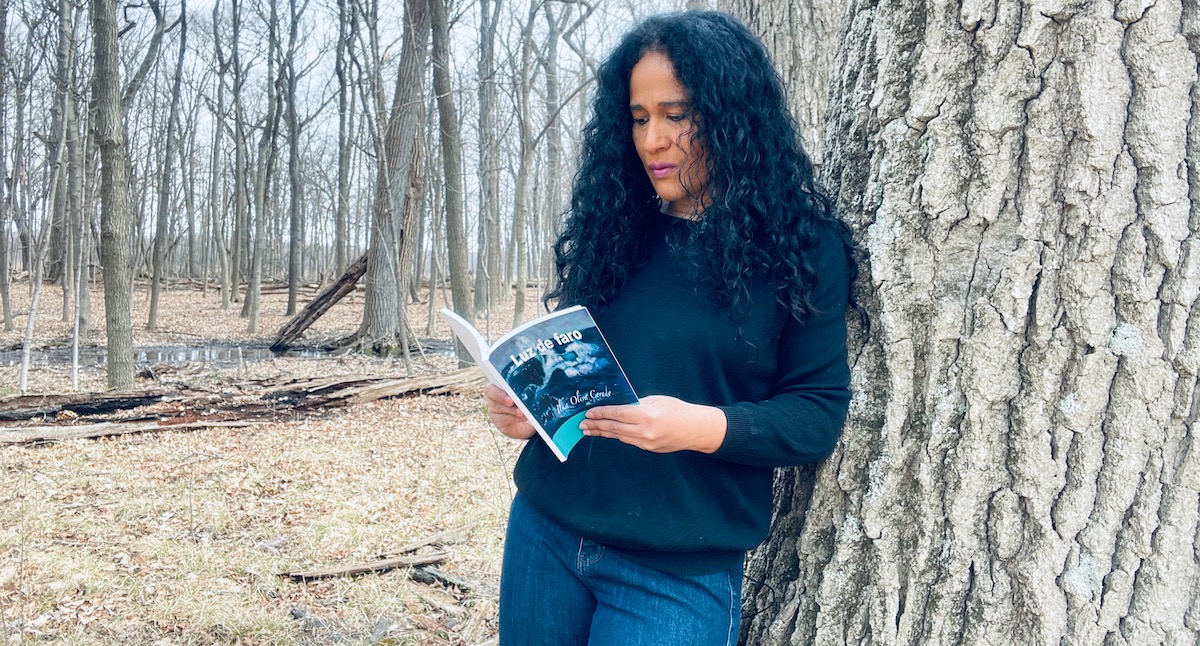Translated by Katrina Hassan
He draws the curtain and opens the blinds, sunbeams criss-cross the dust in the room. Marcelino lives in an old derelict building. The owners never fix anything because they rent it out to undocumented Latin American migrants. This being the reason why they’ve never done the required upgrades.
The more he cleans, the more the dust builds up, like roaches or ants. Marcelino rents a studio apartment. It’s a small room where he has a stove, a small fridge, and a small bathroom. He barely has any room to move. After 12 years of living in an apartment with 8 more migrants he dared to rent a studio alone. He could have done so two years ago but his obligations in his hometown of Tacaná, San Marcos, Guatemala prevented him from doing so. He rents the place with a migrant from Mexico and another from El Salvador.
Their clothing is stored in plastic bags because there is no room for furniture. To save space, they don’t have a TV, everything they watch is on their phones. They have three mattress which they lean against the wall during the day when they unfold the chairs and dining room table. The table and chairs are pushed into a corner at night so the mattresses can come down.
Marcelino opens the blinds and listens to the the sound of snow melting and it is encouraging. Soon he will have work again. The first days of spring are when people call him to mow their lawn. In wintertime he doesn’t have as much work. It is all part time and temporary. In February, his walk as a migrant is totally different than back home in Tacaná, where he cultivated the second harvest of the milpa. He used to cut
chilacayotes[1], and the yellow sunflowers would bloom and turn a brighter yellow along the path home.
Not only did he inherit his maternal grandfather’s name but also his trade of making and selling adobe bricks. When Marcelino was a child he helped cut the grass, watered the earth that would later kneaded with his feet. They used to rent a spot to dry the bricks as they needed twenty five days for them to be ready.
He managed to provide for his family by working the land and making adobe. One day, the land owner stopped renting the spot because he sold it to a family that had all their kids living undocumented in the United States. The family was building a motel with all the remittance money.
This was why he left. He would have never left all those sunny days in exchange for six months of grey skies and snow. He wouldn’t have voluntarily exchanged the yellow sunflowers for the dust in this old building. He wouldn’t have changed the corn husks hanging from the rafters for roaches in the pantry. Marcelino would have never left his children physically if he had had enough to bring them up and give them better opportunities. He was forced into it, like millions of Guatemalans.
In February, when it smells like corn that has just been harvested in his native Tacaná, he suffers from depression like most of undocumented migrants do. Wintertime brings with it pain, in the soul and in the senses, it numbs the bones and impedes mobility. Marcelino tries to resist, getting drunk with is roommates, in order to forget for a moment the reality of being undocumented.
He bathes in Florida water and menthol alcohol so that the rheumatism subsides and he can work again. He awaits the April day when spring arrives so that he doesn’t have to desperately search for sunbeams. In February, in his native Tacaná, he could be enjoying the harvest of chilcayotes, admiring the sunflowers turning bright yellow and eating chicken soup with homemade tortillas with his family.
He doesn’t know that in a few months he will die. A heart attack will knock him down, caused by diabetes that he didn’t know he had. He will be one more in the undocumented migrant statistics, dying in exile, alone, without any family nearby. His body will spend months frozen at the morgue until the people he knew raise enough money, collecting on the street, at stores, in churches, from his coworkers, to send him home, to his family that have missed him so.
[1] Chilcayote: an edible fruit, oblong and green, with white pulp, very fibrous; used for marmalade.
[1] Mx, Gu, Ho, ES, Ni. Fruto comestible del chilacayote, oblongo, de color verde, y pulpa blanca y fibrosa; se usa para hacer mermeladas y frutas.
If you share this text in another website and/or social media, please cite the original source and URL: https://cronicasdeunainquilina.com
Ilka Oliva-Corado @ilkaolivacorado






